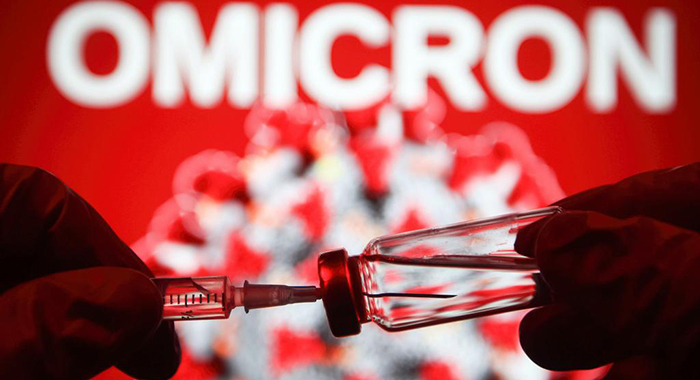St. Vincent and the Grenadines has recorded an additional 208 cases of COVID-19 as health officials suspect that the high contagious Omicron variant of the virus is circulating in the population.
The figures emerging this week could give an indication of how the virus might have spread over the holiday season, which saw health officials approving a number of vaccinated events, including the Nine Mornings celebrations as well as fetes organised by private promoters.
On Wednesday, NBC Radio reported Chief Medical Officer, Dr. Simone Keizer-Beache as saying that theMinistry of Health has seen a significant increase in the number of COVID-19 cases since Dec. 28.
“We have noticed a steady increase in the number of persons presenting for care, in terms of testing with symptoms and signs of COVID and also with their contacts being positive. We are also seeing persons who are fully vaccinated testing positive.”
She, however, said that it still remains that there is much easier transmission of COVID-19 among unvaccinated people.
“But definitely, we have seen a significant increase in the number of cases since the 28th of December 2021 and this continues.”
The CMO told the state-owned media outlet that the Ministry of Health suspects that the Omicron variant of the virus might be circulating in the country.
“We suspect that because of the rapidity of the transmission and the presentation — when symptoms start, that we are probably seeing some Omicron in this sort of transmission.
Keizer-beach, however, said that her ministry is yet to get “any sort of confirmation of Omicron beside the initial case that we had but the pattern of disease is highly suggestive of Omicron circulating,” she said.
On Dec. 27, NEMO announced that the Omnicron variant had been detected among samples taken three days earlier. The variant was detected in a fully-vaccinated traveller from the United States.
The National Emergency Management Organisation (NEMO) said today (Thursday) that 117 new COVID-19 positive cases were reported from 416 samples collected on Monday, Jan. 3, resulting in a positivity of 28.1%.
NEMO said that 99 new rapid antigen positive results were reported from flu clinics on Jan. 3.
And, 91 new COVID-19 positive cases were reported from 363 samples collected on Tuesday, Jan. 4, resulting in a positivity of 25.1%.
NEMO said that 64 new rapid antigen positive results were reported from flu clinics on Jan. 4.
As has been the case over the past few months, NEMO did not say how many of the COVID-19 positive people are vaccinated.
As of Tuesday, 62,308 doses of COVID-19 vaccines have been administered in St. Vincent and the Grenadines.
This was disaggregated into 33,726 first doses and 26,892 second doses. The difference between the figures is 1,690 doses.
The COVID-19 Taskforce report did not say how many booster shots had been delivered although some people, including Prime Minister Ralph Gonsalves, has stated publicly that they have received “booster shots”.
At the same time, the first set of persons to be vaccinated locally received their jab almost a year ago.
NEMO said Thursday that there were no patients admitted for COVID-19 at the Argyle Isolation Facility and 16 patients were admitted to the COVID-19 ward at the Milton Cato Memorial Hospital.
Of these, two are fully vaccinated and 14 patients are unvaccinated.
There was no new COVID-19 death for the period Jan. 3 to 4, but NEMO announced separately on Thursday that the country had recorded its COVID-19 death in a fully vaccinated person.
Meanwhile, 68 recoveries were noted over the reporting period, leaving 743 active cases.
SVG has recorded 6,247 COVID-19 cases and 84 COVID-19 deaths since March 2020.
NEMO said:
“In view of the confirmed presence of the Delta, Mu and Gamma variants in the community and the significant increase in the number of new infections, transmission, severe COVID-19 disease and deaths, strict enforcement and compliance with all protocols and recommendations by everyone is strongly recommended. The correct and consistent use of masks, avoidance of crowds, physical distancing, proper hand sanitising and immunisation with available vaccines have all been proven to significantly reduce the risk of being infected, getting sick and or dying from the COVID-19 virus.”






